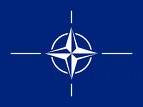NATO meeting looks at eastern expansion
 Krakow, Poland - NATO defence ministers were meeting in Krakow on Friday to discuss the future of the alliance, including the thorny issue of further expansion towards Russia's borders.
Krakow, Poland - NATO defence ministers were meeting in Krakow on Friday to discuss the future of the alliance, including the thorny issue of further expansion towards Russia's borders.
The first round of talks in the snowy Polish city was devoted to defining the alliance's strategies for the 21st century and improving the way it works as it gets ready to welcome new member states and see the possible return of France to its command structure.
The discussions were also attended by officials from Albania and Croatia, which expect to join the 26-strong organization at its 60th anniversary summit on April 3-4 in the French city of Strasbourg and its German neighbour Kelh.
NATO leaders invited the two Western Balkan states into the club at last year's summit in Bucharest.
However, Croatia's chances have since run into trouble, with neighbouring Slovenia refusing to ratify the documents needed to allow it in due to a border dispute concerning access to a small stretch of the Adriatic Sea.
Asked whether the deadlock might be resolved soon, German Defence Minister Franz Josef Jung said: "The conditions for both Croatia and Albania have been fulfilled, and I hope this can be decided at the (April) summit."
Ministers were later due to hold talks with Georgia and Ukraine, two countries that are eager to join the North Atlantic Treaty Organization in light of an increasingly assertive Russia.
NATO has decided to step up cooperation with Georgia in the aftermath of last year's short-lived war with Russia, which experts say was partly caused by the former Soviet republic's desire to strengthen its ties with the West.
Jung said ahead of Friday's talks that NATO should help "stabilize the situation in Georgia while maintaining dialogue with Russia."
Georgia and Ukraine were denied Membership Action Plans (MAP) in Bucharest amid concerns by France and Germany that they were not yet ready and that the move might provoke hostility in Moscow.
Instead, they are being helped by NATO to get into shape for future membership in a series of programmes which one diplomat said "look a lot like a MAP."
In this context, ministers were also expected to discuss Russian efforts to tighten its grip on South Ossetia and Abkhazia through the creation of new military bases in Georgia's separatist regions.
Finally, the meeting's hosts were likely to draw attention to US plans for the creation of a missile shield based in Poland and the Czech Republic - another issue that has antagonized Moscow. (dpa)